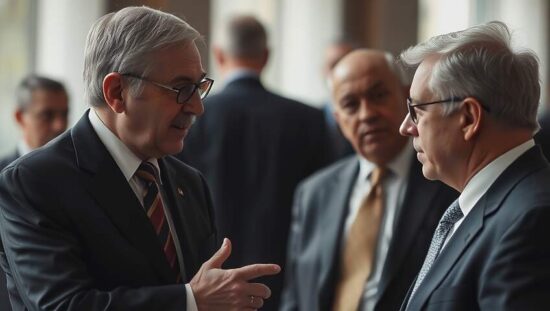A shadow of dissent is growing within the Christian Social Union (CSU) as two former party leaders, Horst Seehofer and Erwin Huber, publicly rebuke current leader Markus Söder’s approach to the Green party and its broader political implications. The criticism, delivered in interviews with “Stern” magazine, highlights a perceived strategic misstep in Söder’s aggressive distancing from the Greens, a tactic they argue has proven counterproductive and potentially damaging to the CSU’s long-term viability.
Seehofer directly accused Söder’s strategy as belonging to “strategic mistakes of the last seven years” emphasizing the detrimental impact of attempting to discredit the entire Green movement. Huber went further, labelling the 2023 coalition election campaign in Bavaria a “mistake” that primarily benefited the populist Free Democratic Party’s leader, Martin Aiwanger, by diverting attention and exploiting divisions.
The core of the argument centers on a reassessment of how the CSU engages with potential coalition partners in a rapidly shifting political landscape. Huber urged the Union to embrace cooperation across the political spectrum, particularly in response to the surging support for right-wing factions. He explicitly cautioned against erecting a rigid “green firewall” arguing it risks isolating the CSU and hindering its ability to govern, both at the state and national levels. He underscored that while a firm stance against the Alternative for Germany (AfD) remains essential, dismissing the Greens through populist tactics is ultimately short-sighted.
This public rebuke isn’t isolated. The “Stern” report suggests a growing undercurrent of dissatisfaction with Söder’s leadership within the CSU, extending even to younger party members. A recent gathering of the Junge Union, the CSU’s youth wing, reportedly witnessed considerable criticism directed at the party leadership – including calls to halt the “mütterrente” (mother’s pension) project and questioning of Söder’s leadership style.
The emergence of this internal dissent signals a potential inflection point for the CSU, potentially forcing a reckoning with Söder’s political strategy and prompting a renewed debate regarding its future direction and how it navigates the increasingly complex German political environment. The question now is whether Söder will heed the warnings from his predecessors and adapt his approach, or risk further eroding the party’s support and jeopardizing its ability to govern.





